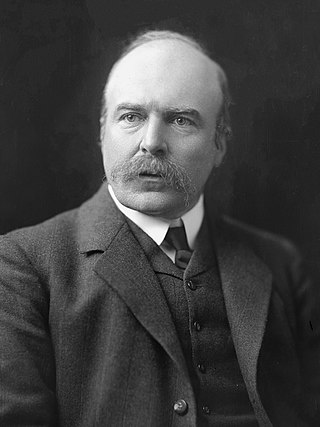Related Research Articles

The 1884 New Zealand general election was held on 22 July to elect a total of 95 MPs to the 9th session of the New Zealand Parliament. The Māori vote was held on 21 July. A total number of 137,686 (60.6%) voters turned out to vote. In 11 seats there was only one candidate.

The 1887 New Zealand general election was held on 26 September to elect 95 MPs to the tenth session of the New Zealand Parliament. The Māori vote was held on 7 September. 175,410 votes were cast. In 5 seats there was only one candidate.

The 1899 New Zealand general election was held on 6 and 19 December in the European and Māori electorates, respectively, to elect 74 MPs to the 14th session of the New Zealand Parliament. The election was again won by the Liberal Party, and Richard Seddon remained Prime Minister.

Wairarapa is a New Zealand parliamentary electorate. It was first created in 1858 and existed until 1881. It was recreated in 1887 and has since existed continuously. The current Wairarapa electorate MP is Mike Butterick.

Robert McNab was a New Zealand lawyer, farmer, historian, and politician of the Liberal Party. He was Minister of Justice for the 18 months before his death.

Waitaki is an electorate for the New Zealand House of Representatives that crosses the boundary of North Otago and South Canterbury towns on the East Coast of the South Island. The electorate was first established for the 1871 election that determined the 5th New Zealand Parliament. It has been abolished and re-established several times and in its early years was a two-member electorate for two parliamentary terms. The current electorate has existed since the 2008 election and is held by Miles Anderson of the National Party.
Awarua was a New Zealand parliamentary electorate from 1881 to 1996.
Wallace was a New Zealand parliamentary electorate. It was established in 1858, the first election held in 1859, and existed until 1996. From 1861 to 66, it was represented by two members. In total, there were 18 Members of Parliament from the Wallace electorate.
Clutha was a New Zealand parliamentary electorate from 1866 to 1996.
Wakatipu was a parliamentary electorate in the Otago region of New Zealand, from 1871 to 1928.
Chalmers, originally Port Chalmers, was a parliamentary electorate in the Otago Region of New Zealand, from 1866 to 1938 with a break from 1896 to 1902. It was named after the town of Port Chalmers, the main port of Dunedin and Otago.
Moeraki was a parliamentary electorate in the Otago region of New Zealand, from 1881 to 1887.
Taieri is a parliamentary electorate in the Otago region of New Zealand, initially from 1866 to 1911, and was later recreated during the 2019/20 electoral redistribution ahead of the 2020 election.
Hokonui was a parliamentary electorate in the Southland region of New Zealand, from 1881 to 1890.
City of Dunedin, during the first two parliaments called Town of Dunedin, was a parliamentary electorate in Dunedin in Otago, New Zealand. It was one of the original electorates created in 1853 and existed, with two breaks, until 1905. The first break, from 1862 to 1866, was caused by an influx of people through the Otago gold rush, when many new electorates were formed in Otago. The second break occurred from 1881 to 1890. It was the only New Zealand electorate that was created as a single-member, two-member and three member electorate.
Roslyn was a parliamentary electorate in the city of Dunedin in the Otago region of New Zealand from 1866 to 1890.
Oamaru was a parliamentary electorate in the Otago region of New Zealand, during three periods between 1866 and 1978.
James Mackintosh was a 19th-century Liberal Party Member of Parliament in Southland, New Zealand.
The 9th New Zealand Parliament was a term of the Parliament of New Zealand.
The 10th New Zealand Parliament was a term of the Parliament of New Zealand. Elections for this term were held in 4 Māori electorates and 91 European electorates on 7 and 26 September 1887, respectively. A total of 95 MPs were elected. Parliament was prorogued in October 1890. During the term of this Parliament, two Ministries were in power.
References
- Gustafson, Barry (1980). Labour's path to political independence: The Origins and Establishment of the New Zealand Labour Party, 1900–19. Auckland, New Zealand: Auckland University Press. ISBN 0-19-647986-X.
- McRobie, Alan (1989). Electoral Atlas of New Zealand. Wellington: GP Books. ISBN 0-477-01384-8.
- Wilson, James Oakley (1985) [First published in 1913]. New Zealand Parliamentary Record, 1840–1984 (4th ed.). Wellington: V.R. Ward, Govt. Printer. OCLC 154283103.